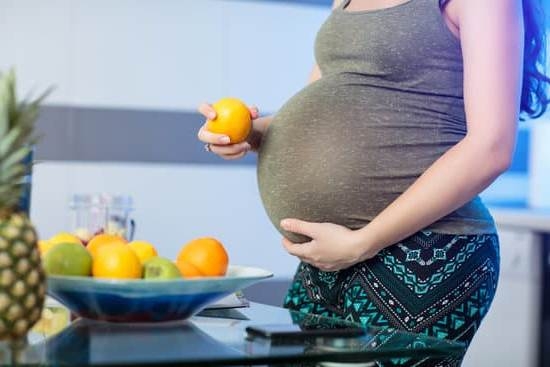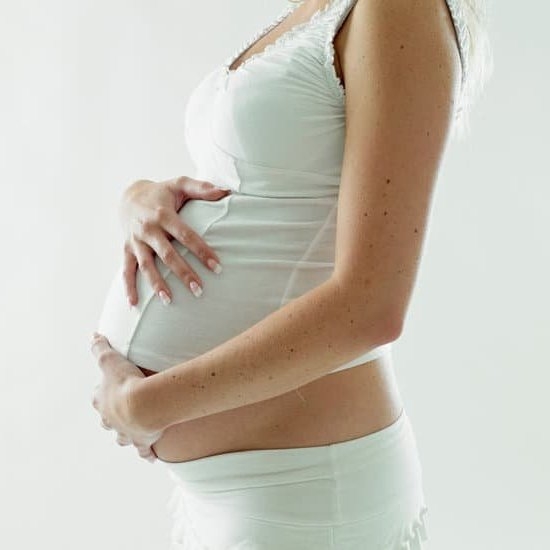Iron is an essential mineral that plays a crucial role in overall health, especially during pregnancy. Many women wonder, does nutritional need for iron double in pregnancy? Understanding the significance of iron during this critical stage is important for the health of both the mother and the developing baby.
During pregnancy, the body’s demand for iron increases as it supports the growth and development of the fetus. Iron is necessary for the production of hemoglobin and myoglobin, which are responsible for carrying oxygen to the cells and muscles. Without an adequate supply of iron, the risk of complications such as preterm delivery and low birth weight increases. Therefore, it is vital to examine whether nutritional needs for iron indeed double during pregnancy.
Exploring normal iron requirements and how pregnancy impacts nutritional needs will provide insight into meeting these increased demands. Additionally, understanding the signs of iron deficiency during pregnancy and how to incorporate iron-rich foods in a prenatal diet can help expectant mothers ensure they are meeting their nutritional needs. This article delves into the science behind iron requirements during pregnancy and offers tips for maintaining optimal iron levels to support a healthy pregnancy.
Iron’s Role in the Body
Iron plays a crucial role in the body’s overall health and well-being. It is an essential mineral that is responsible for carrying oxygen to the body’s tissues and organs, as well as being involved in the production of energy. Additionally, iron is vital for maintaining healthy skin, hair, and nails, as well as supporting the immune system.
Importance of Iron for Pregnant Women
During pregnancy, the demand for iron significantly increases as it supports the growth and development of the fetus. Iron is necessary for the expansion of a mother’s blood volume to supply oxygen to her growing baby. Additionally, iron is needed for the development of the placenta and for the baby’s own iron stores. Without adequate iron intake during pregnancy, there is an increased risk of complications such as preterm delivery or low birth weight.
Consequences of Iron Deficiency
When pregnant women do not consume enough iron through their diet or supplements, they may become anemic. Anemia during pregnancy can lead to fatigue, weakness, difficulty concentrating, and an increased risk of infections. In severe cases, it can also cause complications such as preterm delivery and low birth weight. Therefore, it is crucial for pregnant women to ensure they are meeting their increased need for iron to support both their own health and the health of their developing baby.
Normal Iron Requirements
Iron is a vital micronutrient that plays a key role in the production of hemoglobin, which is responsible for carrying oxygen throughout the body. For this reason, it is crucial to understand the recommended daily intake for iron and how it can be met through diet and supplementation.
In a non-pregnant state, the recommended dietary allowance (RDA) for iron is 18mg per day for women aged 19-50 years. However, during pregnancy, the need for iron increases significantly to support the various physiological changes that occur.
During pregnancy, the body’s blood volume increases in order to support the growing fetus. This increase in blood volume requires more iron to produce additional hemoglobin to carry oxygen to both the mother and the developing baby.
As a result, the nutritional need for iron does indeed double during pregnancy, with an RDA of 27mg per day for pregnant women. This significant increase in iron requirement emphasizes the importance of maintaining adequate levels of this essential nutrient to support maternal and fetal health.
Inadequate intake of iron during pregnancy can lead to negative outcomes such as anemia and low birth weight in newborns. Therefore, it is crucial for expectant mothers to be mindful of their iron intake and incorporate a variety of iron-rich foods into their prenatal diets.
Additionally, healthcare providers may recommend iron supplements to ensure that pregnant women meet their heightened nutritional needs for this mineral. By understanding the increased requirement for iron during pregnancy and taking proactive steps to meet these needs, expectant mothers can promote optimal health outcomes for themselves and their babies.
| Iron Requirements | Recommended Dietary Allowance (RDA) |
|---|---|
| Non-Pregnant Women | 18mg/day |
| Pregnant Women | 27mg/day |
The Impact of Pregnancy
Increased Demands on the Body
During pregnancy, a woman’s body goes through numerous changes to support the growth and development of the fetus. This includes an increase in blood volume, expansion of the uterus, and the development of the placenta. These changes result in a higher demand for essential nutrients, including iron, to support both the mother and baby’s health.
The Role of Iron in Pregnancy
Iron plays a crucial role during pregnancy as it is necessary for the production of hemoglobin, which carries oxygen to cells throughout the body. Additionally, iron is essential for fetal development and growth. The growing fetus relies on the mother’s iron stores to support its own blood supply and overall development.
Double Nutritional Needs for Iron
Research has shown that the nutritional need for iron does indeed double during pregnancy. The recommended daily intake for iron increases from 18 milligrams for non-pregnant women to 27 milligrams for pregnant women.
This significant increase is necessary to support the expansion of blood volume, provide oxygen to the developing fetus, and prevent maternal anemia. Therefore, it is crucial for expectant mothers to be mindful of their increased iron requirements and take proactive steps to ensure they meet these needs through diet and supplementation if necessary.
Understanding how pregnancy impacts nutritional needs, particularly in relation to iron, is crucial for supporting optimal maternal and fetal health throughout this critical time. By being aware of these changes and taking proactive steps to meet increased iron requirements, expectant mothers can help ensure a healthy pregnancy and delivery.
Does Nutritional Need for Iron Double in Pregnancy? Examining the Science Behind Iron Requirements
Iron is a crucial nutrient that plays a vital role in the production of red blood cells, which helps transport oxygen throughout the body. During pregnancy, the body’s blood volume increases significantly to support the growing fetus, which naturally raises the question: does nutritional need for iron double in pregnancy? The answer is not quite double, but it does increase substantially.
The recommended daily intake of iron for non-pregnant women is 18 milligrams per day. However, during pregnancy, this requirement increases to 27 milligrams per day. This is because the body needs to produce more red blood cells to support the placenta and the growing baby.
Research has shown that failing to meet these increased iron needs during pregnancy can lead to iron deficiency anemia, which can have serious consequences for both the mother and the baby. Therefore, it is essential for pregnant women to pay close attention to their iron intake and ensure that they are meeting their heightened nutritional requirements.
Here are some examples of why pregnant women require more:
- The recommended daily intake of iron nearly doubles during pregnancy
- Iron helps with developing hemoglobin and myoglobin
- Not consuming enough iron could result in iron deficiency among expecting mothers
Signs of Iron Deficiency During Pregnancy
During pregnancy, a woman’s body goes through significant changes to support the developing fetus. One of these changes includes an increase in blood volume, which can result in a higher demand for iron.
Iron is crucial during pregnancy as it supports the production of hemoglobin, the protein in red blood cells that carries oxygen to tissues throughout the body. When the body does not receive enough iron, it can lead to iron deficiency anemia, which can have serious consequences for both the mother and the baby.
Here are some signs and symptoms of iron deficiency during pregnancy:
- Fatigue and weakness: Feeling unusually tired or weak, even after getting enough rest.
- Shortness of breath: Difficulty catching your breath, especially with physical activity.
- Pale skin and gums: A noticeable paleness in the skin and the lining of the eyes or inside of the mouth.
- Dizziness or lightheadedness: Feeling faint or dizzy, especially when standing up quickly.
If left untreated, iron deficiency anemia can increase the risk of preterm delivery, low birth weight, and other complications during pregnancy. It’s important for pregnant women to be aware of these symptoms and seek medical advice if they experience any of them.
To help prevent iron deficiency during pregnancy, it is recommended for women to consume more iron-rich foods such as lean meats, poultry, fish, beans, lentils, tofu, and leafy green vegetables. Additionally consuming foods high in vitamin C can help improve iron absorption from plant-based sources.
In some cases where dietary intake may not be sufficient to meet nutritional needs for iron during pregnancy; healthcare providers may recommend taking iron supplements to ensure adequate levels are being maintained for both mother and baby.
Meeting Iron Needs
During pregnancy, it is crucial to ensure that you are meeting your nutritional needs, including the need for iron. Iron is essential during pregnancy as it plays a vital role in the production of hemoglobin, the protein in red blood cells that carries oxygen to other cells in your body.
The amount of blood in your body increases during pregnancy, so you need more iron to make more hemoglobin. It also helps transport oxygen to the growing baby and supports your increasing blood volume.
To meet the increased nutritional need for iron during pregnancy, it is important to incorporate iron-rich foods into your prenatal diet. Here are some tips for ensuring that you are getting enough iron:
- Lean red meat: Beef and lamb are excellent sources of heme iron, which is easily absorbed by the body.
- Poultry and fish: Chicken, turkey, and fish provide heme iron as well as non-heme iron.
- Beans and lentils: These plant-based sources of iron also contain fiber and protein.
- Fortified cereals: Look for breakfast cereals that are fortified with iron to help meet your daily requirements.
It’s important to pair these foods with sources of vitamin C, such as citrus fruits, strawberries, or bell peppers, as this can help increase the absorption of non-heme iron. Additionally, it’s best to avoid consuming calcium-rich foods or drinks at the same time as high-iron foods since calcium can interfere with the absorption of iron.
By following these tips and incorporating a variety of these foods into your diet, you can ensure that you are meeting your increased nutritional need for iron during pregnancy.
The Role of Iron Supplements
Iron supplements are commonly recommended for pregnant women to ensure they meet their increased nutritional needs during pregnancy. The question of whether the nutritional need for iron doubles in pregnancy has led to the consideration of iron supplements as a way to support maternal and fetal health.
During pregnancy, a woman’s blood volume increases significantly, and her body requires more iron to produce hemoglobin for the growing fetus. This increase in iron demand, combined with the fact that many women enter pregnancy with already low iron stores, can lead to an increased risk of iron deficiency anemia if dietary intake is insufficient. As a result, healthcare providers often recommend iron supplements to pregnant women, especially those who are at higher risk for iron deficiency.
The use of iron supplements during pregnancy is not only important for preventing and treating iron deficiency anemia but also for supporting the overall health and development of the fetus. Research has shown that inadequate iron levels during pregnancy can lead to adverse outcomes such as preterm birth, low birth weight, and even developmental delays in the child.
Therefore, considering the use of iron supplements as part of prenatal care can help ensure that both the mother and baby receive adequate amounts of this essential nutrient throughout pregnancy.
Conclusion
In conclusion, it is clear that the nutritional need for iron does indeed double during pregnancy. The demands of a growing fetus, placenta, and increased blood volume for the mother necessitate an increase in iron intake to support healthy development and to prevent complications such as anemia. It is therefore crucial for expectant mothers to pay close attention to their iron intake and ensure they are meeting their nutritional needs.
While some women may be able to achieve adequate iron levels through diet alone, others may benefit from the use of iron supplements. It is important for pregnant women to discuss their individual needs with a healthcare provider and to monitor their iron levels throughout pregnancy. By proactively addressing any deficiencies, women can help reduce their risk of complications and promote better health outcomes for themselves and their babies.
Incorporating iron-rich foods into a prenatal diet and being mindful of factors that can affect iron absorption can also play a key role in meeting nutritional needs during pregnancy. With the right attention to diet and supplementation when necessary, expectant mothers can feel confident that they are supporting their own health as well as the healthy growth and development of their unborn child.
Frequently Asked Questions
What Is the Nutrition Need for Increased Iron During Pregnancy?
The nutrition need for increased iron during pregnancy is crucial, as iron is necessary for the production of hemoglobin, which carries oxygen to both the mother and the baby. Pregnant women need more iron to support the increase in blood volume and to provide adequate oxygen supply to the fetus.
Iron deficiency during pregnancy can lead to complications such as premature birth and low birth weight.
Do I Need to Take Extra Iron While Pregnant?
Yes, it is generally recommended for pregnant women to take extra iron. The increased iron requirement during pregnancy is often difficult to meet through diet alone, especially for those who have difficulty consuming enough iron-rich foods.
Prenatal vitamins usually contain supplemental iron, but some women may require additional iron supplements prescribed by their healthcare provider based on their individual needs.
What Are Extra Nutritional Needs During Pregnancy?
In addition to increased iron, there are other nutritional needs during pregnancy that are important for supporting the health of both the mother and baby. These include folic acid, calcium, vitamin D, omega-3 fatty acids, and protein.
Meeting these nutritional needs can help reduce the risk of complications such as neural tube defects, preeclampsia, and preterm birth. It’s essential for pregnant women to follow a well-balanced diet and discuss any specific nutritional concerns with their healthcare provider.

Welcome to my fertility blog. This is a space where I will be sharing my experiences as I navigate through the world of fertility treatments, as well as provide information and resources about fertility and pregnancy.





